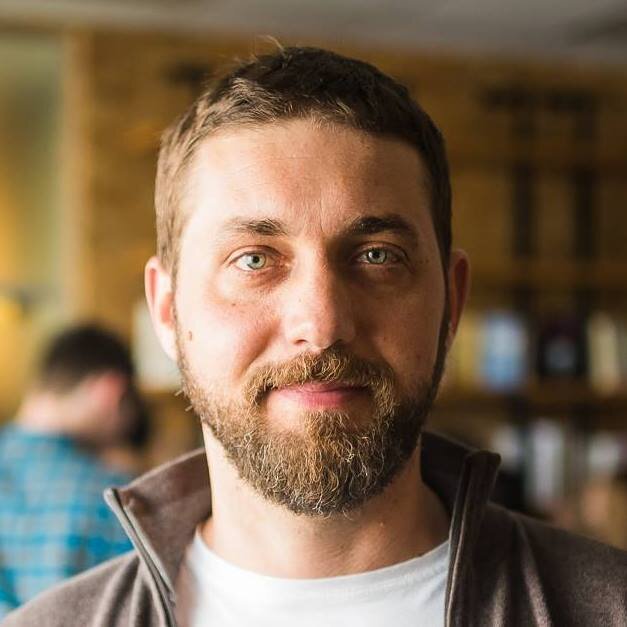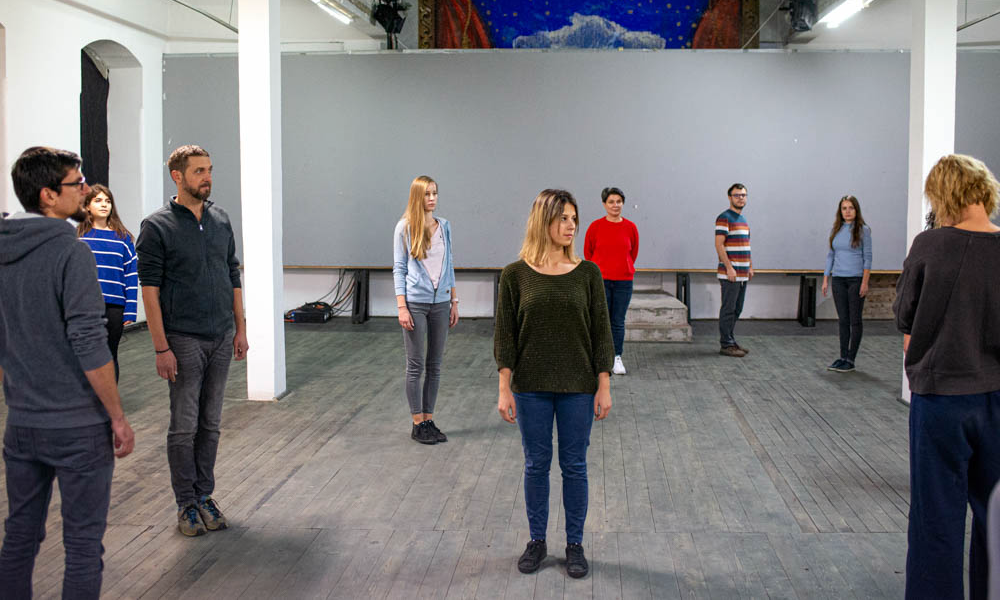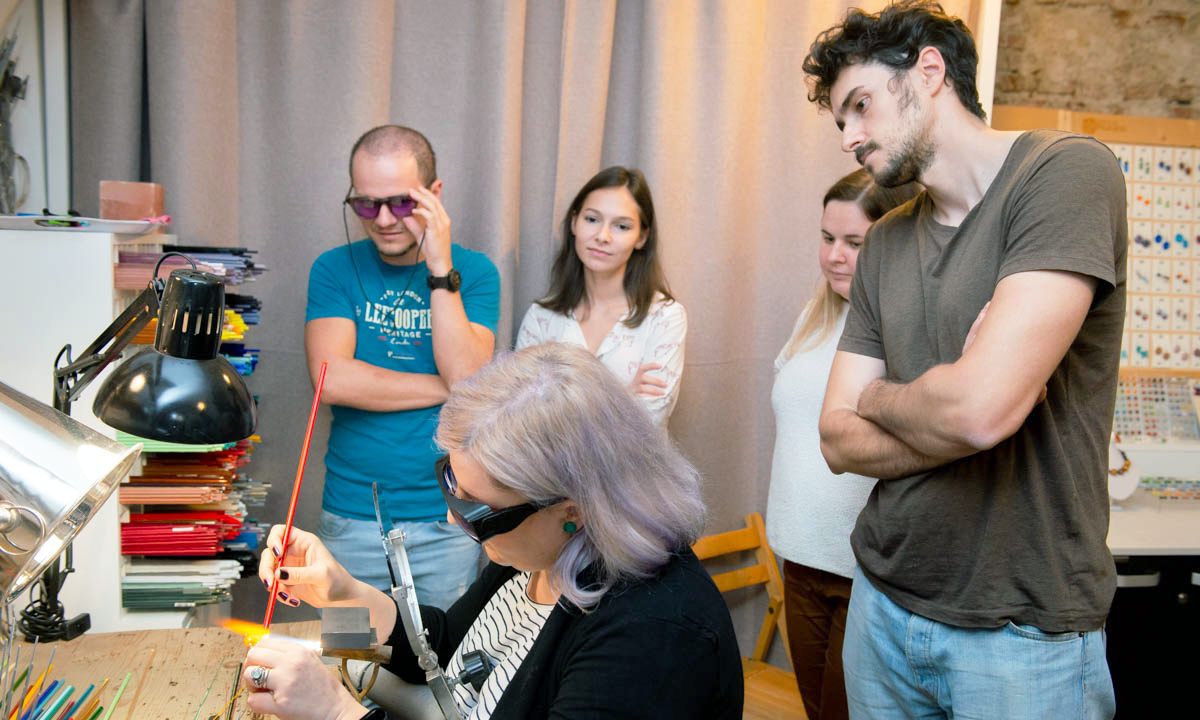Article originally published on Howlround.

In 1998, when I moved to Cluj-Napoca from my hometown of Târgu-Mureș (both in Romania), it was still a grey post-communist city, where the only colors were blue, yellow, and red—those of the country’s flag, which was painted everywhere by the ultra-nationalist then-mayor. I was listening to Massive Attack, had seen Pulp Fiction and Trainspotting, had read Handke, and was yearning for the newest type of culture.
The Faculty of Letters at the local university wasn’t the place to find that. I studied Romanian language and literature, and everything was traditional and rigid. The curriculum was built on teachers’ egos without any concern for the students’ needs, the requirements of the work market, or the new cultural and educational trends. The public institutions (theatres, philharmonic, cinemas) were just as dusty. So I survived on whatever I discovered through my fellow students—mainly literature and music—and some breaths of fresh air that snuck in—contemporary jazz concerts, the mini festival of the Impossible Theatre, the events at Tranzit House—thanks to the few independent event organizers. The latter was a model for an alternative cultural space: relaxed, open, and democratic.
I first got involved in organizing events in 2003, when I managed, along with two friends, the alternative stage for an open-air electronic music festival (DelaHoya). Then we started doing our own music parties—break beat, drum and bass, trip hop—in underground locations. The following year, we set up a cultural association, Zoom Out, to promote electronic music, as well as present slam poetry, hip hop, visual art performances, and exhibitions. We also opened a film club, where the projections were followed by debates. Everything we did was financed by entry tickets or sponsorships.

In 2008, I moved my ideas and energy in Cărturești, a bookshop and cultural venue. Having access to my own location for events, as well as to logistics and a small budget, allowed me to develop and test numerous directions and formats over the next eleven years: book presentations, public readings and dialogues with writers, story nights for children, debates, psychology conferences, exhibitions, creative workshops, acoustic concerts, theatre readings, and more.
The reward for this work was firstly related to the people: the audience, who found joy in these events, and the collaborators—writers, artists, film directors, playwrights, psychologists—with whom I shared ideas and who were a source of inspiration. Then there was the chance to work—in a country suffocated by favoritism and defiance of meritocracy—in an oasis of normality, where relationships were based on respect, trust, and common sense. And, finally, there was freedom, from work schedules to event policies, which encouraged responsibility and gave me space to grow, to form a vision. There were also some sad conclusions of my work there: that the cultural audience in Cluj was limited and the word “community” doesn’t hold much meaning in post-communist Romania, which is governed by a savage individualism.
“The cultural audience in Cluj was limited and the word “community” doesn’t hold much meaning in post-communist Romania, which is governed by a savage individualism.”
Over these eleven years, the cultural offerings in Cluj have developed tremendously, which has mostly been due to the independent scene. Transylvania International Film Festival, the Paintbrush Factory (an independent visual and performing arts federation), Temps d’Images (a theatre, dance, and video festival), Electric Castle (an indie and electronic music festival), Jazz in the Park, and Reactor (an independent theatre company and performance venue) are just a few of the projects that brought conceptual and formal innovation to the city, that shaped artists and audiences and put Cluj on the European (and even global) cultural map. The local administration and the Ministry of Culture, through its institutions, always lingered behind, like two rusty train wagons that were hard to get moving. Only when some of the independent projects got international recognition did the ministry open the door for dialogue and start financially supporting the organizations more consistently.
For organizers, growing the cultural audience is just as important as developing events, because even in a city the size of Cluj—which, with its 450,000 inhabitants, is the second largest in Romania—the number of people who engage in cultural events (other then big festivals) is small. Back in 2003–04, we would consult the other organizers to avoid holding our events during the same month as theirs. Now there are dozens of events daily, in a variety of forms, themes, and spaces. Some of the organizers took it upon themselves to develop audiences and coagulate communities through constant events throughout the year, like the French Institute and the German cultural center; coffee houses like Insomnia, Atelier Café, and Sisters; independent theatre spaces like Reactor or ZUG.zone; and a few bookshops. Others prefer to host large-scale events, which are capable of gathering tens of thousands of people.
That kind of big event has its advantages, but can also have a negative effect. People prefer huge sensational events that happen on occasion instead of daily exposure to art, like going to the cinema, museum, or theatre. Big festivals like UNTOLD, the electronic music festival that takes place in the middle of the city, can also have a negative impact on the daily life of the inhabitants because of traffic, noise, ridiculously high prices, and blocked access to public spaces, like Central Park. Unfortunately, there are no large-scale local campaigns that promote or encourage reading and participation in cultural events. Because of this, the benefits and positive impact of cultural activities—the way culture can broaden horizons, deepen thought, and intensify life—are not highlighted enough. Many people don’t understand why these events are worth investing their time and money in, so instead just look for entertainment.
“The benefits and positive impact of cultural activities—the way culture can broaden horizons, deepen thought, and intensify life—are not highlighted enough.”
This was one of the goals when, at the beginning of 2018, I founded Flux, a cultural start-up that goes outside of the current bubble and tries to attract and form a new audience. I wanted to show people that cultural experiences can increase their wellbeing. Flux works with companies interested in offering their employees artistic or knowledge-based experiences as an alternative to the usual trainings and team buildings. By participating in these workshops, people discover new dimensions, discover themselves and their workmates, and connect to the city’s cultural life. Flux offers them the chance to take part in activities they often don’t find the time for or that they don’t know how or where to approach.
Some of the workshops can be held at the companies’ office, including ones on rhythm and percussion, interactive theatre, storytelling through comics, juggling, creative recycling, ceramic painting or modeling, sustainability, and much more. Other experiences require going out into the city to artisans’ studios, museums, art galleries, and on guided tours, or even venturing outside the city to visit interesting natural habitats, old villages and communities, as well as to learn about nature through activities like foraging.

Flux is a project where I am putting into practice everything I’ve learned over the last fifteen years. I collaborate with many of the wonderful people I have met along the way and make connections—between culture and business, but mostly between people—curate art, and find creative and innovative solutions to problems. The results have exceeded my expectations. The people in the companies I work with are gradually opening to the experiences I propose—they have tried a lot of things they may not have thought about before, and each of them has found something they like and are now eagerly waiting for new challenges.
Mihai Varga, from a design company that works with Flux for over a year now has said: “Each event is carefully crafted to expand our worldview and cultural capacity but we also experience an aesthetic uplift and social connectedness.” That is what Flux intends to do: make people feel closer to each other, more open and more creative, and enrich local culture.
After more than twenty-one years living and working in Cluj-Napoca, I see that the city is completely different now: modern, colorful, ambitious, expanding, and expensive, with a vibrant cultural life. I realized that the newest type of culture I was hoping to discover when I first got here actually had to be created, and I’m glad I could make a small contribution. Now Cluj-Napoca is my city too.